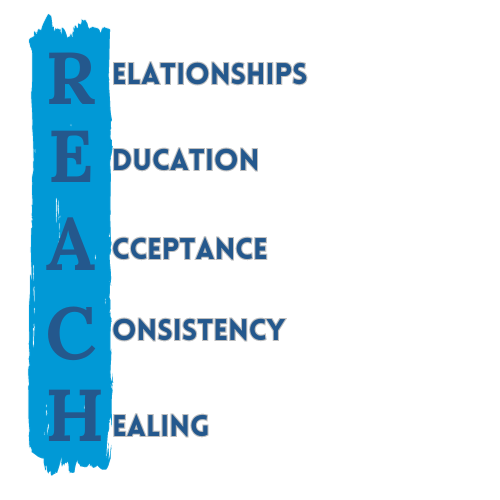Our Children's Homestead (OCH) has been leading in therapeutic foster care since 1995!
OCH contracts with the Department of Children and Family Services (DCFS) to provide therapeutic foster care and adoption services to youth and families who have experienced complex trauma. Our staff go through elaborate and continued training to be able to provide the best services to Illinois families with the highest need.
We empower parents to heal and grow so that their children can be returned to them. If they are unable, we immediately work to identify an adoptive family for the youth; however, the sad truth is that not all youth get adopted. We support each youth to recognize and develop the power within them to become joyful, self-reliant, healthy, and successful adults.
OCH serves youth of all ages however, the majority are between the ages of 12 and 21. They have been removed from their homes due to severe abuse, neglect or dependency. They struggle with a combination of medical, developmental, mental health and behavioral issues that require intensive services.
Each youth receive a TEAM of support:
-Caseworker
-Therapist
-Mentor
-Educational Liaison
-Foster Parent/s
-Community Providers
Our children are placed into homes with foster parents who are trained and committed to providing specialized care. Each youth is assigned a case worker who provides case management tailored to their individual needs. Our foster parents, caseworkers and therapists work closely to support their child’s needs and enable them to succeed.
We empower parents to heal and grow so that their children can be returned to them. If they are unable, we immediately work to identify an adoptive family for the youth; however, the sad truth is that not all youth get adopted. We support each youth to recognize and develop the power within them to become joyful, self-reliant, healthy, and successful adults.
OCH serves youth of all ages however, the majority are between the ages of 12 and 21. They have been removed from their homes due to severe abuse, neglect or dependency. They struggle with a combination of medical, developmental, mental health and behavioral issues that require intensive services.
Each youth receive a TEAM of support:
-Caseworker
-Therapist
-Mentor
-Educational Liaison
-Foster Parent/s
-Community Providers
Our children are placed into homes with foster parents who are trained and committed to providing specialized care. Each youth is assigned a case worker who provides case management tailored to their individual needs. Our foster parents, caseworkers and therapists work closely to support their child’s needs and enable them to succeed.
What is project REACH?
Project REACH is our most intensive program, providing trauma-informed individualized therapeutic services to the youth referred by DCFS, as well as to their foster and primary families. The youth in this program have trauma histories and severe emotional and behavioral problems which adversely affect the youth’s adaptive functioning, educational progress, and ability to form and maintain relationships.
The youth in this program include:
Primary parents are provided with a Reunification Specialist, whose primary role is to support their family’s reunification. Foster parents working within project REACH are provided a Family Support Specialist, who is specifically trained to support fostering of youth in this program. These foster parents also receive evidence-based training in order to become skilled at parenting youth with intensive behavioral needs stemming from trauma experiences.
Together Facing the Challenge (TFTC) is a trauma-informed, evidence and skills-based training program for therapeutic foster parents who care for children with emotional or behavioral problems. The training program aims to help foster parents build and maintain supportive and involved relationships with children in their care. It also intends to help foster parents learn and use effective behavior management and communication strategies.
Foster parents attend seven group training sessions: (1) Building Relationships and Teaching Cooperation, (2) Setting Expectations, (3) Use of Effective Parenting Tools to Enhance Cooperation, (4) Implementing Effective Consequences, (5) Welcoming Diversity, (6) Transition to Young Adulthood, and (7) Effective Communication and Taking Care of Self. Trauma-informed care principles such as safety, trustworthiness and transparency, peer support, collaboration, and empowerment are embedded throughout the curriculum. Homework exercises are assigned to foster parents between each session so that foster parents can put the theory and learned strategies into practice.
The youth in this program include:
- Youth psychiatrically hospitalized who are ready for discharge and without placement;
- Youth at risk of placement in residential treatment due to pattern of placement instability or disruption who have not responded to or improved with specialized foster care services;
- Youth placed in residential treatment or congregate care who are without a discharge placement; or
- Youth approaching or exceeding the 12 or 18-month lifetime limit for residential or congregate care.
Primary parents are provided with a Reunification Specialist, whose primary role is to support their family’s reunification. Foster parents working within project REACH are provided a Family Support Specialist, who is specifically trained to support fostering of youth in this program. These foster parents also receive evidence-based training in order to become skilled at parenting youth with intensive behavioral needs stemming from trauma experiences.
Together Facing the Challenge (TFTC) is a trauma-informed, evidence and skills-based training program for therapeutic foster parents who care for children with emotional or behavioral problems. The training program aims to help foster parents build and maintain supportive and involved relationships with children in their care. It also intends to help foster parents learn and use effective behavior management and communication strategies.
Foster parents attend seven group training sessions: (1) Building Relationships and Teaching Cooperation, (2) Setting Expectations, (3) Use of Effective Parenting Tools to Enhance Cooperation, (4) Implementing Effective Consequences, (5) Welcoming Diversity, (6) Transition to Young Adulthood, and (7) Effective Communication and Taking Care of Self. Trauma-informed care principles such as safety, trustworthiness and transparency, peer support, collaboration, and empowerment are embedded throughout the curriculum. Homework exercises are assigned to foster parents between each session so that foster parents can put the theory and learned strategies into practice.
Options for Permanency:
Return Home:
- Children return to the care of their birth parents after the family has successfully completed services and addressed the issues which brought them to the attention of DCFS. OCH may stay involved to support the families and ensure that children are protected and nurtured. The birth parents resume all parental responsibilities.
- Since 1995, Our Children’s Homestead has accomplished well over 100 adoptions of children into loving foster care families. Adoption may be by the foster parents, kin, or a new family. Adoption transfers custody from DCFS to the adoptive parents and transfers all parental rights permanently to the new parents. The birth parents’ rights are terminated. The adoptive parents are financially and legally responsible for the children, although adoption subsidies may be available. Children have the same status as if they were born into the family.
- Guardianship transfers custody from DCFS to the guardians and transfers most parental rights and responsibilities to the guardians. Foster parents, kin, or a new family may assume guardianship. Birth parents’ rights do not need to be terminated by guardianship. The guardians are financially and legally responsible for the children, but subsidies are available. The birth parents or others can contest guardianships, and the guardians can ask for revocation of the guardianship.
- Independence is a goal chosen for youths who will remain in the custody of DCFS until emancipation. OCH is responsible to develop plans to prepare these young people to learn skills necessary to function independently as adults.

